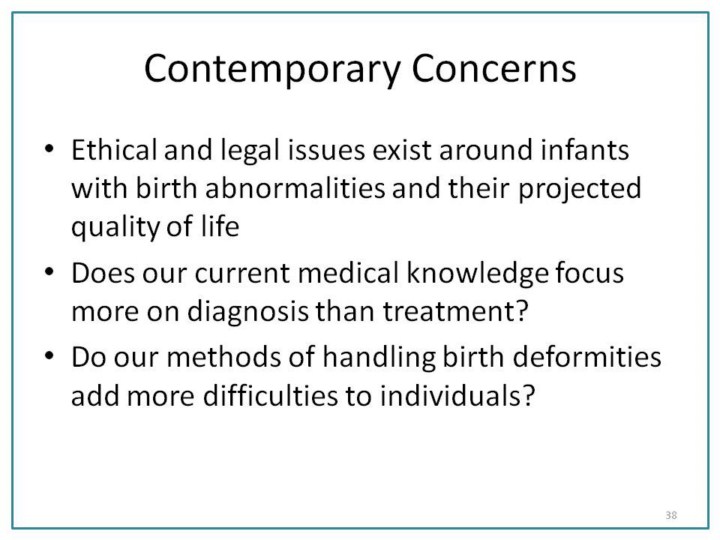| front |1 |2 |3 |4 |5 |6 |7 |8 |9 |10 |11 |12 |13 |14 |15 |16 |17 |18 |19 |20 |21 |22 |23 |24 |25 |26 |27 |28 |29 |30 |31 |32 |33 |34 |35 |36 |37 |38 |39 |40 |41 |42 |43 |44 |45 |46 |review |
 |
Birth abnormalities continue to raise serious concerns in our society. In 1982, the parents of an abnormal infant and its doctor decided to withhold treatment and feeding. They made this decision in light of the serious defects and the projected quality of life. However, this case attracted public attention. It brought attention to the care of severely handicapped infants. A debate emerged over whether these children'sí live should be prolonged if their quality of life will also be hampered by their conditions.59 As medical knowledge increases, some experts have argued that we have more knowledge to diagnose than treat.60 When children suffering from thalidomide exposure were born without hands or feet, they almost immediately received prosthetic limbs. Sometimes, these tools hampered rather than helped.61
|